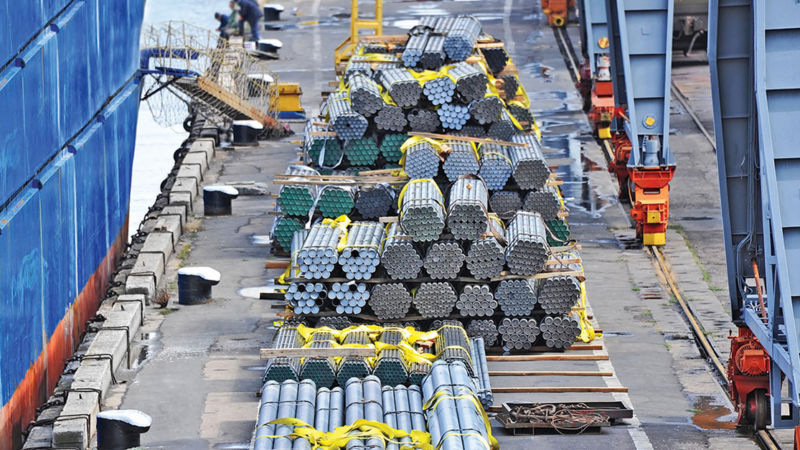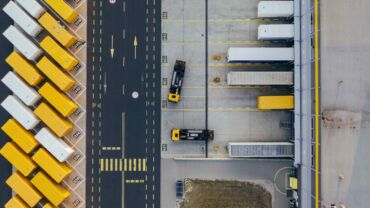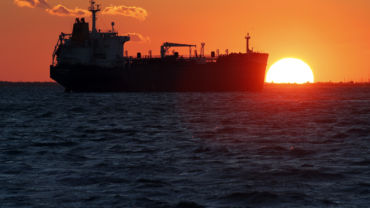Currently developed and emerging countries have specific laws for the treatment of corporate criminal liability, which require companies to establish a credible program to prevent, detect and correct crimes such as bribery, influence peddling, incompatible negotiations, illicit enrichment and the presentation of false reports.
Regardless of these legal requirements, compliance is an activity that has occupied an important role within companies with special relevance in international trade; as it is an activity that links the entire supply chain, business partners, service providers and government organizations. One false move could lead to a disruption in a company’s supply chain.
The term compliance is broad, covering many aspects, but its main role is the identification of regulations, the management of risk analysis and the overall guidance to the business and its stakeholders. Once a compliance process is implemented, it should generate alerts to detect risks, and provide continuous monitoring of the program.
Ultimately, by being compliant, companies are viewed by the regulatory bodies as more reliable, a mandatory quality that today is recognized by many Customs agencies around the world. This is most prevalent in companies that qualify under the Authorized Economic Operator (AEO) program.
The AEO program, based on the SAFE Framework proposed by the World Customs Organization (WCO), allows companies to have faster Customs formalities and processes in their foreign trade operations. In practice this also provides companies with lower costs in their supply chain, because of the expedited processing, provided they comply with the requirements of the AEO program.
Currently 70% of certified companies operating in AEO and reciprocal programs are in the United States and Europe. In the last few years, we have seen the program is rapidly growing with more than 70 countries facilitating on-going programs or are in the process of implementing them.
Sharing his vision and experience in multinational companies, Alejandro Terzian, Head of Foreign Trade for Southern Cone at Bayer, highlights the importance of the involvement of the Foreign Trade Department throughout the supply chain to avoid errors and mitigate risks that always come with economic losses. “Foreign trade is a business that has many particular characteristics and those that do not know them, do not take real dimension of the risks that are assumed,” says Alejandro.
He also stressed that “Foreign trade is one of the areas of the company that have greater interaction with different public agencies. This makes the management of international business very complex. In addition, it has a particularity that is the confluence of national and global regulations that must be known in detail, made compatible and put into practice”.
In this sense, the companies that have achieved better results adding reliability in their import and export processes, are those that have understood that international trade is now part of the core business of any regional or world scale company.
Risk Areas
One of the main risk factors in foreign trade can often be the documentation used to facilitate the movement of goods and declaring these goods to the relevant agencies. Unfortunately, this is an area that is cumbersome and often difficult for companies to manage. “When we make an international purchase, we do not only buy merchandise, we also buy documents and information”, Alejandro highlights, and mentions the relevancy of the interaction with Customs Brokers to add value and reduce risks. “If I talk to my Customs Broker and I do not speak with him properly, or I ask him to do something that cannot be done, when we have to demand results, we probably will not reach them. So the management of the Customs Broker is extremely important to ensure the best results, at least in Latam.”
The second risk follows this concept. Companies must engage with partners within the flow of their international supply chain. In foreign trade companies are working with “partners” instead of “suppliers” to greatly oversee and facilitate their supply chain. This seems irrelevant, but conceptually it is important for companies to recognize all parties who are part of the international trade process to mitigate risk and impart proper controls on how they do business.
When it comes to mitigating risk, Alejandro believes that there is work to be done in self-management. “There must be constant monitoring and follow-up of the entire logistics chain: Customs Broker, Customs Office, Freight Forwarder, Carrier, etc. It is more expensive, but is indispensable for certain companies at the end of the day. The costs, in these cases, should go to the background.”
As a recap Alejandro commented on the importance of having a proactive role and being attentive to achieve operational excellence in Foreign Trade, that is to say “understand the logic of business and not see how things happen, but make things happen. The most important role of the Foreign Trade management is to add value to the Company, for that reason, work in development and training are key factors for the creation of efficient team works for the achievement of the best results, “Alejandro said.
In conclusion, the most competitive companies do and recommend the following best practices, in order to maintain compliance:
- Stay current with legal changes. By keeping up with the regulations, adapting their processes on time and taking advantage of the changes, this practice can to make a huge difference with their competitors; especially if they are not as quick to adopt the changes in their supply chain.
- Team balance. Optimizing workflows can be a great challenge. When Foreign Trade teams work together with other departments or partners, it is important to be concrete and clear on expectations and goals to achieve objectives.
- Mitigate the risk of supply chain interruptions. Companies will increase their efficiencies when there is less dependence on manual processes and when they reduce their supply chain complexity.
- Add Automation. The automation in foreign trade reduces the chance of error and the loss of time in information processing, increasing the visibility to events and allowing a greater rapidity to market arrival;
- Be flexible in times of global changes. Workgroups must work in flexible environments. In this way they retain the ability to adapt quickly to regulatory changes, opportunities in new markets and in managing their partners.
Click here for more information on our global trade management solutions to address your immediate and ongoing needs.






